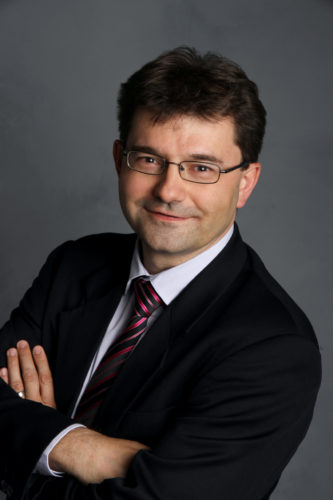Forward Thinking Science Diplomacy – Switzerland leads the way
Author(s):
Urs Obrist

The significance of Science Diplomacy has considerably increased over the past decade. Global crises such as climate change or Covid-19 have brought this to the fore for a larger public in a much more dramatic way than most of us could have imagined just some five years ago. But did these challenges come as a surprise? No, not really, the experts would likely answer for both. Were the warnings of the consequences of inaction heeded? Certainly not in vast segments of the population. So what is to be done to be ready for the next potential international emergency? One answer lies in the anticipation of the next trends. This encompasses not only global calamities, but also includes foreseeing the impending scientific developments of relevance and impact around the world. This is where the Geneva Science Diplomacy Anticipator (GESDA) comes in. It was founded in 2019 by the Swiss Federal Government and the canton of Geneva, based on the notion of a rapidly accelerating pace of scientific and technological revolutions and a humanity left with less and less time to adapt to new realities, whilst in need of legal frameworks and comparable standards.
At the beginning of October, the inaugural GESDA summit took place at the Campus Biotech in Geneva and brought together leading scientists, diplomats, science advisors, funding agencies and representatives of national and multilateral institutions. As the initiators of the program were able to demonstrate, the Geneva Science and Diplomacy Anticipator builds capacities to spot future scientific and technological breakthroughs before they happen and will provide an inclusive, diverse platform with a global reach. In keeping with its vision of ‘Using the future to build the present’, the GESDA Foundation seeks to understand frontier scientific breakthroughs and leverage them, where appropriate, in the interests of the collective welfare of humanity. Once it has identified what the next advances could be, GESDA presents them in an accessible way to decision-makers in the political and business communities, and to the public at large. This process relies on a concrete three-step approach: Scientific anticipation is followed by Diplomacy Acceleration and translation into action.
One of GESDA’s first major initiatives is the so-called Science Breakthrough Radar. We recommend you have a look at it on https://radar.gesda.global/ , but in short, the Science Breakthrough Radar provides an overview of science trends and breakthrough predictions for the next 5, 10 and 25 years. It covers 24 science and technology areas, a synthesis of the related fundamental debates in society, and an exploration of opportunities for concerted action through initial contributions on the implications for international affairs, global challenges, and the SDGs. Thus, rather than providing a crystal ball and hopeful prophecies, this is a platform and tool, informed and joined by an increasing set of expert scientists who can foresee the “next big thing”, for example space mining, the quantum revolution and artificial intelligence, or human augmentation and eco-regeneration just to name a few.
Those specifically engaged in science and diplomacy should look up on the GESDA website the trends in multistakeholder technology diplomacy, integration of non-state actors, diplomacy for big science, and management of the Global Commons.
In all those fields, questions to consider are the potential of new technology discoveries or how to provide equitable and fair access to these discoveries for humanity. Which improvement do these discoveries bring and what dangers come along with them? Questions as these underline the need for a renewed spirit of multilateralism to ensure that everyone reaps the potential benefits of human ingenuity and scientific exploration while safeguarding the collective welfare. This is where science diplomacy comes in.
It is in this spirit that the Geneva Science Diplomacy Anticipator (GESDA) offers a bridge between the worlds of science and diplomacy. It is no coincidence that GESDA is based in Geneva. First, International Geneva is arguably the leading centre of global governance, given the number of international governmental and non-governmental organisations based there. Some also refer to International Geneva as the engine room of the international system, because it is where a significant proportion of global organisations’ activities are defined, benefitting from a neutral platform where global actors can meet and connect. Secondly, Switzerland leads the world when it comes to science, technology and innovation as is given evidence by the Global Innovation Index year after year. Switzerland’s efforts to better integrate and use science diplomacy in international affairs are part of a coherent and credible approach. And thirdly, Switzerland’s peace and security efforts draw on science diplomacy. Where dialogue between policy makers breaks down, science can help to re-establish trust and ties between states and lead them to work together on issues of common, and even global concern. The Embassy of Switzerland in Canada is part of this effort.
More on the Author(s)
Urs Obrist
Embassy of Switzerland in Canada
Senior Science and Technology Counsellor

